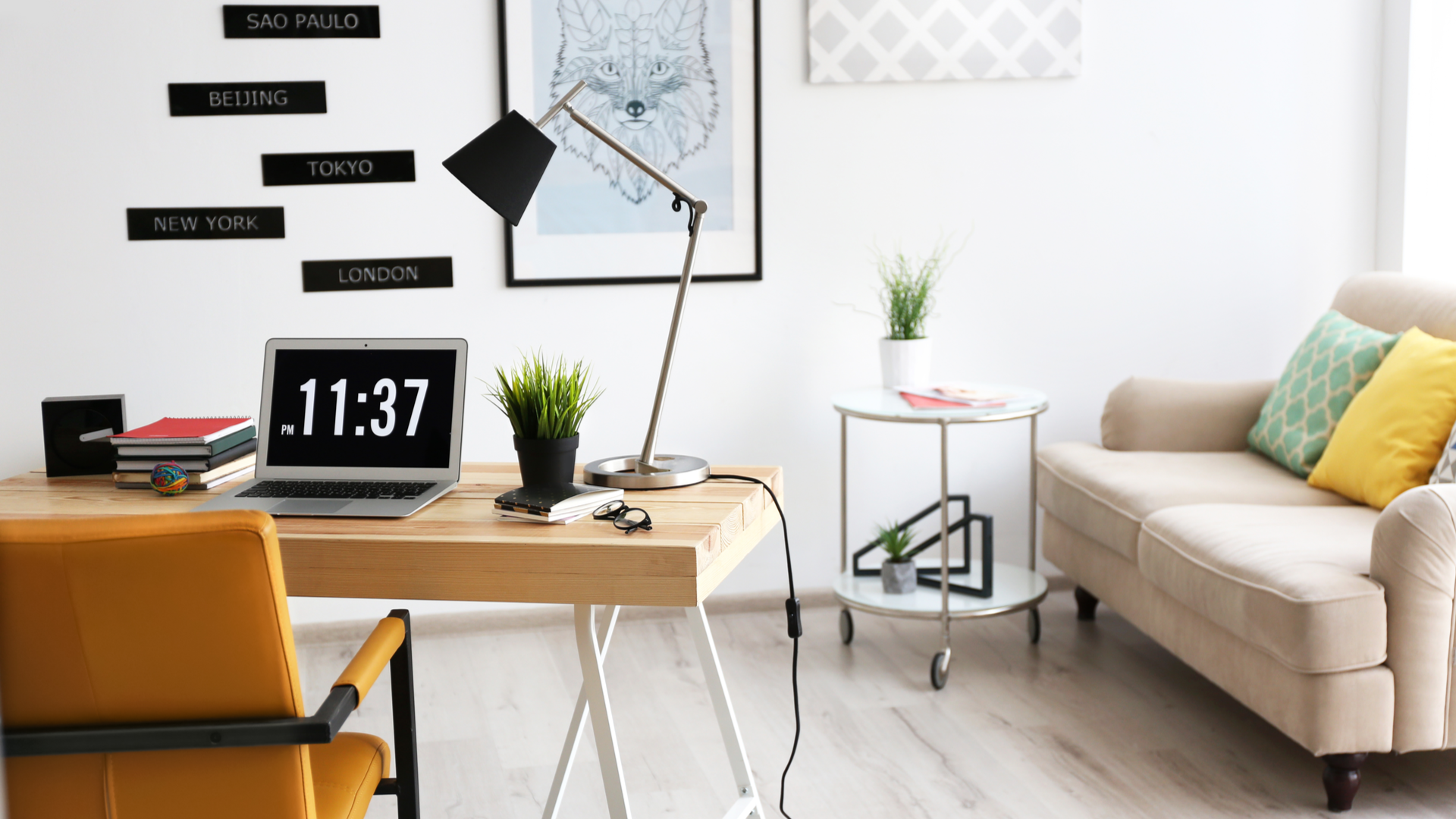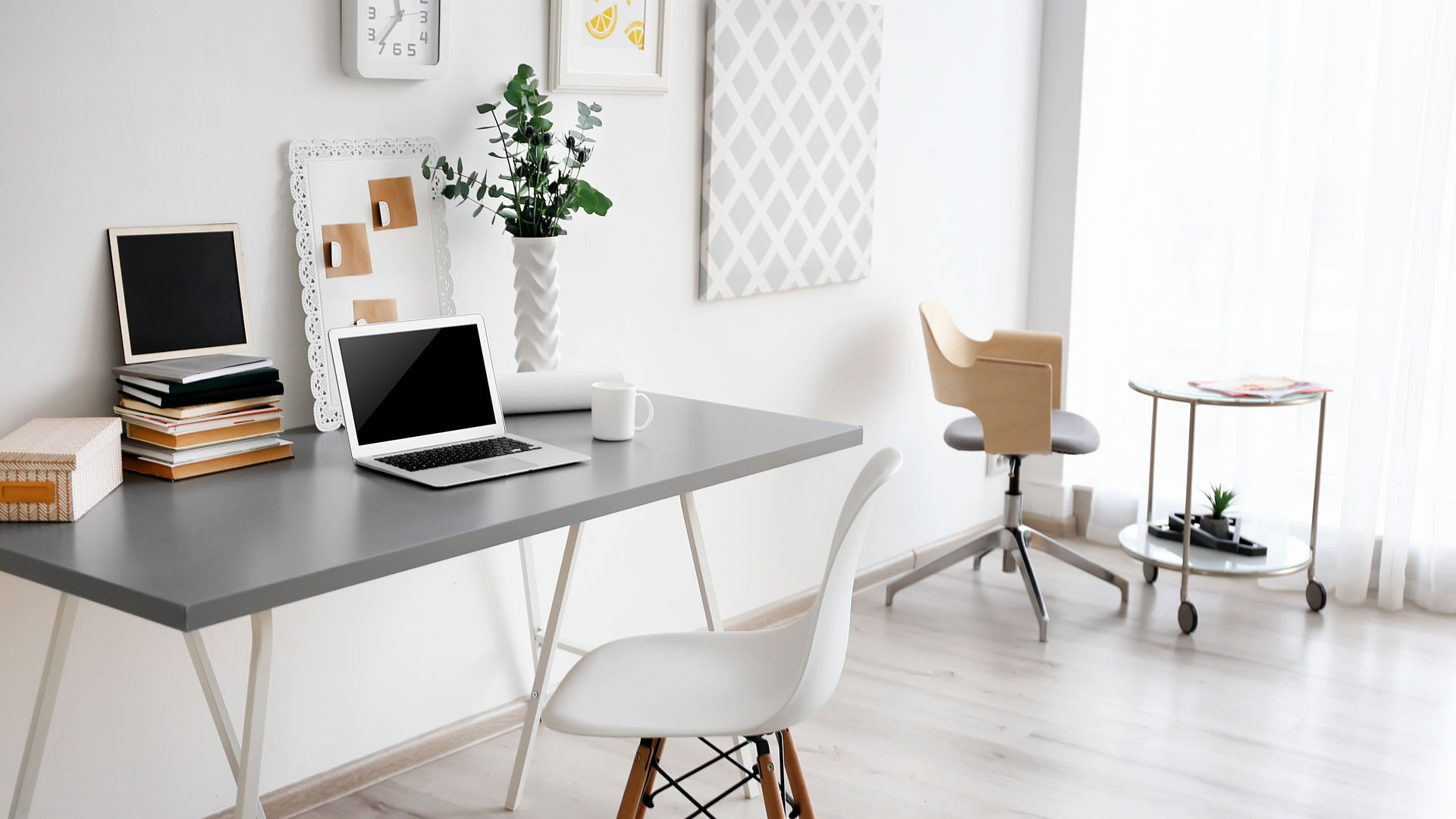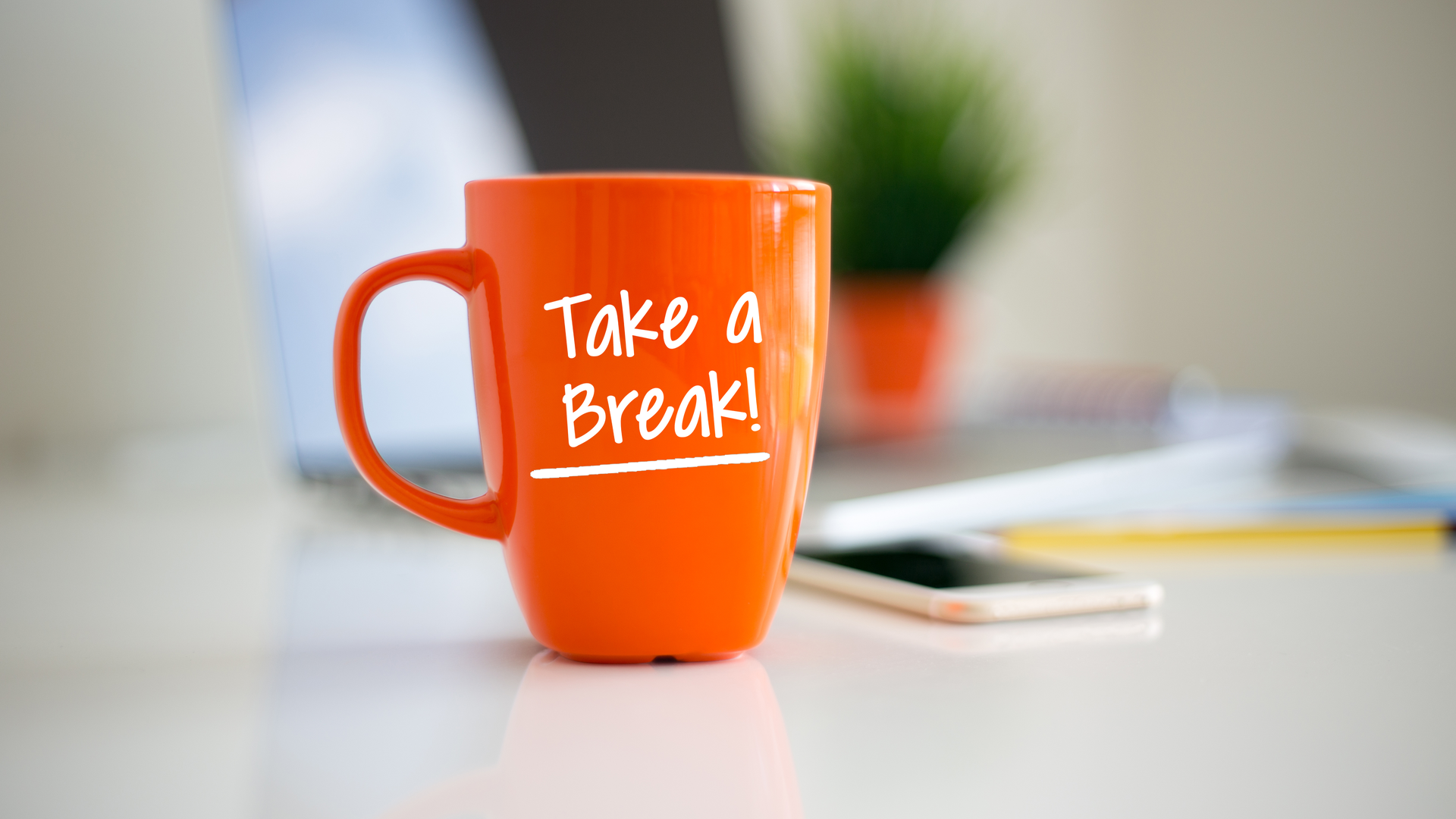Quick Links
Because of Coronavirus, a lot of people are being instructed to work from home. And, for a lot of you, this is the first time you've been expected to get stuff done without actually driving into the office. For many, this is an intimidating and challenging concept. But worry not---I got you.
I've been working from home for nearly a decade and have learned a lot about how to adjust over the years. I went from a drive-to-work-every-single-day job to working from home basically overnight. It never occurred to me how I was going to actually make that transition, so I just had to wing it. I still remember how challenging that was, so I want to share some of what helped me. Hopefully, it will help you, too.
Pick the Right Workspace
If you're new to working from home, you'll need to set up a workspace to actually get things done. Maybe that means turning the guest room into a temporary office or setting up a makeshift office space on your dining room table. Whatever you do, just make sure it's a space that enables you to focus and eliminates as many distractions as possible.
Everyone has varying levels of available space in their home, but I highly recommend trying to find a place away from the common areas in your house. Working from the kitchen is generally a terrible idea because everyone else who lives there will frequent that area, but a formal dining room may work perfectly. The same goes for the living room.
I also highly recommend avoiding setting up a workspace in your bedroom if you can. Working in the same room where you sleep is a huge challenge because it makes it hard to get your brain into sleep mode at night (and into work mode in the morning). Not to mention that if your spouse sleeps in, trying to quietly work early in the morning is frustrating.
Just do the best you can with what you have, especially if this is a temporary thing. No need to go all out and rearrange your entire house to set up a space that you're only going to need for a month or two.
Get Dressed Like You're Going to Work
One of the biggest mistakes I made when I first started working from home was rolling out of bed and straight into my chair. (My first workspace was in my bedroom, which is how I know that it's a horrible way to live and work.) The issue? I didn't feel like I was "going to work."
After the first several days of not being able to focus or get into the groove, I had to change my routine. So, I got out of bed, did the normal morning stuff, then I got dressed. That's what did it for me---I got up every morning and got dressed like I was going to work.
Maybe it was a little more casual than actually driving into the workplace, but I made sure to put on "real clothes." Most of the time that was just jeans and a T-shirt---and sometimes even socks and shoes---but it never felt right to work in pajama pants or clothes that I would otherwise lounge around the house in.
I know how tempting it is to get out of bed, throw on some sweatpants, and try to work. But if you find that you're having a hard time getting into work mode, maybe try a change of clothes. You might be surprised how much it helps.
As a bonus, this also helps with something else you'll struggle with (that we'll talk more about later): separating work and life. If you get dressed to "go to work," then putting your lounge clothes back on is a great way to send the signal that you're "at home" and it's time to chill.
Remind People That You're Working
One of the fascinating things about working from home is that literally everyone around you thinks that because you're home, you're available. If you still have set hours when working from home, trying to get people to understand that you're not really at home just because you're, um, at home, is a challenge---especially for your spouse and/or kids.
I recommend setting up some sort of system to easily let your family know that you're "at work." When I'm in work mode, I'm in work mode and my family needs to understand that I'm not technically available. If you're lucky enough to have a dedicated office, then that may be as easy as sticking a sign on the door that reads "I'm working!" But if you don't, then you'll need to find something that works for you---a way to let people know that you're busy at a glance.
If you're forced to work from the kitchen table, maybe stick a specific-color post-it note on the back of your laptop. Or, set a lamp up with a colored bulb---when that lamp is on, that means you're unavailable. It may take a few days for your family to remember, but once they do, your life will be a lot easier.
Break Your Day Up ... with Breaks
It may sound obvious, but you have to give yourself a break here and there---just like when you're at the office. (You do give yourself breaks at the office, right?) Get up and get away from your computer. Go to the kitchen and get a snack. Find out what it was your significant other needed so badly 35 minutes ago when you were too busy to talk. Just take 15 minutes to clear your mind.
One of the best things about working from home is that if you're having a hard time focusing, you can do things that you can't do at the office. For example, I play the guitar. My entire guitar rig is in my home office. If I'm having a hard time focusing (often happens around mid-day), I'll grab a guitar and jam away for 15 minutes. It's an excellent way to clear my head, and afterward I find that I'm totally focused. Try doing that at the office!
Of course, I'm not suggesting that you pick up guitar, but if you have a hobby that you can pick up and put down easily, then do it! Breaking your day up with things you love doing outside of working hours is a great way to break your day up, throw some fun into the mix, and clear your mind.
Just remember to keep it tight---you don't want your 15-minute break to turn into a 60-minute gaming session, for example. That would be bad.
If it helps, you can also try using an app to time your work/break balance. There are plenty of apps out for pretty much all platforms that can help.
Schedule Video Calls---Not Phone Calls
You know what a lot of people miss when they start working from home? People. There's something to be said about seeing people face to face and, you know, talking to them. That's the thing that doesn't come across during phone calls or conference calls. Seeing people makes a difference.
Recently, I started holding weekly meetings with my core team here at Review Geek. The first week we did a conference call, everyone stumbled over each other, there was awkward silence, and it just ... wasn't great. So, the second week, we switched to video. I could hear the ugh, dammit, mumbling---and I get it, no one likes meetings---but we did it anyway.
After the first week, I'm pretty sure every single one of my core writers told me how much better the video meeting was than they expected. And, you know what else happened? Fluid conversations. No awkward silence, no talking on top of each other. Plus, our generated ideas were better, as were the conversations surrounding those ideas.
Seeing people makes all the difference.
Plus, this gives you another good reason to get dressed.
When It's Time to Stop Working, Stop Working
One of the hardest things to do when working from home is to commit to working hours. It's so easy to start early, work later, or "just check on something" at 9:00 p.m. at night. (I'm currently writing this at 9:00 p.m.---do as I say, not as I do.) But you have to draw a hard line when it's time to stop working.
Maybe that means closing the door to your workspace (be that a temporary makeshift one or dedicated home office). Maybe it means closing your laptop and cleaning up all your work-related stuff that's been scattered across your kitchen table for the last 9 hours. Maybe it just means changing out of your work clothes and into your lounge clothes. Or, maybe it's a mixture of these things.
Whatever it means for you, make sure you stick to it. Shut 'er down when it's time, and do it every day. Start on time, stop on time, and be religious about it. Routines are paramount when working from home, especially for a sense of normalcy.
Working from home is a harder adjustment for some than others, and it's not the best choice for everyone. But with the right mind-set, it can work for just about everyone---especially in critical times like these. Even if you don't like working from home, remember that this is for the greater good (at least for now) and it's the best decision for everyone.
Godspeed, friends.







